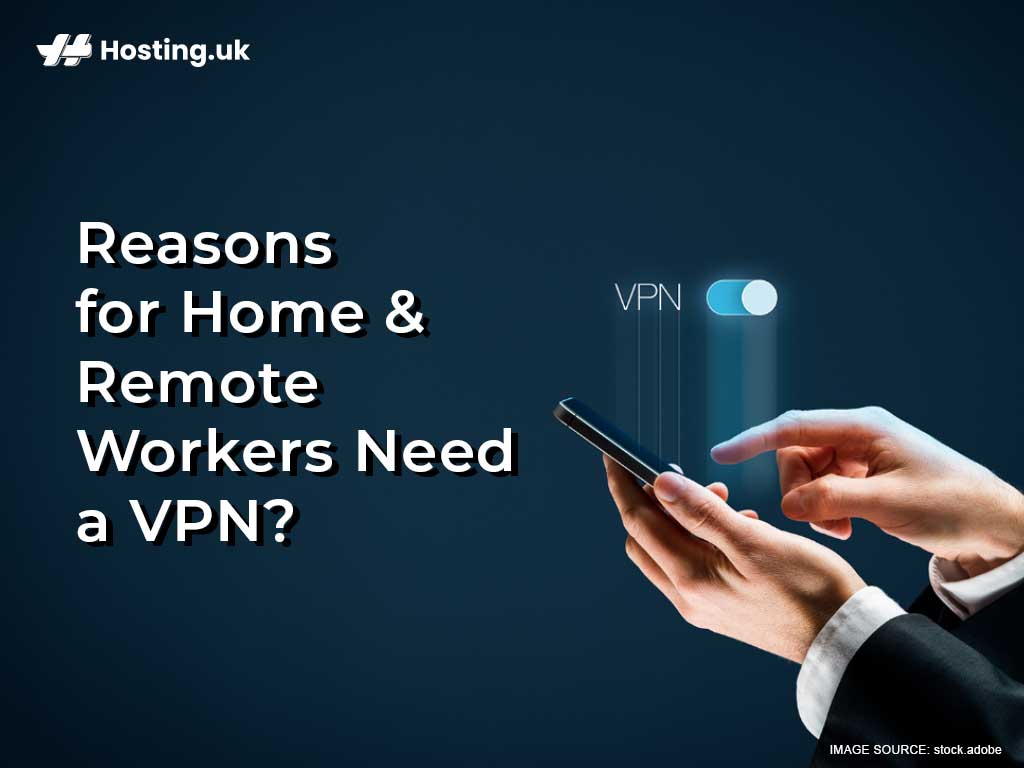Remote workers have been crucial to keeping the economy afloat during the COVID-19 pandemic. However, hackers have been having a field day with all the top-secret data that’s suddenly started floating around unsecured on home networks. That’s why it’s essential for companies to have a proper cloud backup system in place so that if their private data is ever lost, stolen or infected with malware, there’s a clean copy of the data ready to be used. (Cloud backup saves a duplicate of your data securely in the cloud.) But if you want to prevent your data from being stolen or corrupted in the first place, you should get a robust hosting system like VPS hosting. You should also ensure that your remote workers have a VPN.
Table of Contents
What is a VPN?
A VPN (Virtual Private Network) is a secure private network that allows remote workers to transmit data over the internet undetectably and in a way that hackers can’t possibly intercept. It’s kind of like a little private piece of the internet that hackers, the government, and spying competitors can’t get to. Implementing a VPN is a fast, easy, and effective way to make sure that remote workers don’t accidentally compromise the security of your company’s data.
How to get the most out of a VPN
Later in this guide, we’ll talk about how to find the perfect VPN for your company, but first you need to know how to make sure your team members understand the importance of using the VPN. It would help to have a cybersecurity policy in writing that the team can refer to. You should also treat the VPN as part of a larger system of cybersecurity in which you also espouse such virtues as being safe when using public Wi-Fi and not using publicly accessible computers to conduct company business.
5 reasons home and remote workers need a VPN
1. A VPN protects remote workers on public Wi-Fi.
One of the things remote workers love most about not being in the office is the ability to work anywhere that’s most comfortable. Lots of places offer free Wi-Fi to attract customers. And though tempting, but public Wi-Fi can be dangerous. For one, not everyone using public Wi-Fi has good intentions, and sometimes hackers lurk near areas with public Wi-Fi in the hope of intercepting something good.
If your team uses a VPN, you don’t have to worry about what might happen if your workers use public Wi-Fi. Once they turn on the VPN, public Wi-Fi will be transformed into a secure connection where nobody will be able to trace their internet activity.
2. VPNs encourage productivity.
Some employers try to encourage cyber-safety by implementing a policy in which their employees are forbidden to use public Wi-Fi. Some companies restrict employees to use a specific company-provided device to conduct company business. These are moderately successful methods of securing your company’s data, but they have the distinct disadvantage of cutting into your employees’ productivity.
With a VPN, remote workers can freely log in to public networks and work at hotels or anywhere else they might find themselves. This helps encourage productivity, because they don’t need to rule out lots of perfectly good Wi-Fi just because it happens to be publicly accessible.
3. VPNs let you access UK-only content even while travelling.
The great thing about the best VPNs is that they’re let you select a location. This means that websites will interpret your traffic as if it’s coming from that place. So, if your company is based in the UK, and there’s a website that bans you from accessing its content unless you’re in the UK, you’ll still be able to access the website.
In fact, they treat your activity as normal UK-based traffic – thanks to stealth mode. VPN services use a feature called stealth mode to make this possible. So, you go undetected from even website that block VPN traffic.
4. VPNs are fast and easy to use.
VPNs are fast to install and easy to use. They have such a low learning curve that even your most technology-resistant employees will be able to use them. All they need to do is turn on the VPN, and the device will do all the work.
5. VPNs help your clients feel more at ease.
Sometimes, clients withhold sensitive data. They may be worried about where it might end up or that it might fall into the wrong hands. When you use a VPN (and make it known to your clients), you’ll earn their trust. Plus, your clients will feel more comfortable sending you their data.
What VPN should remote workers use?
There are lots of VPNs available on the market, but the best VPNs have these qualities:
- Incognito downloading
- No-logging and secure browsing
- Stealth mode
- 24/7 support
- Military-grade security
Wrapping up
Cloud backup is the best way to protect your data if it ever gets lost or stolen, but if you want to prevent your data from being stolen in the first place, you need a good VPN from a trusted hosting provider.
